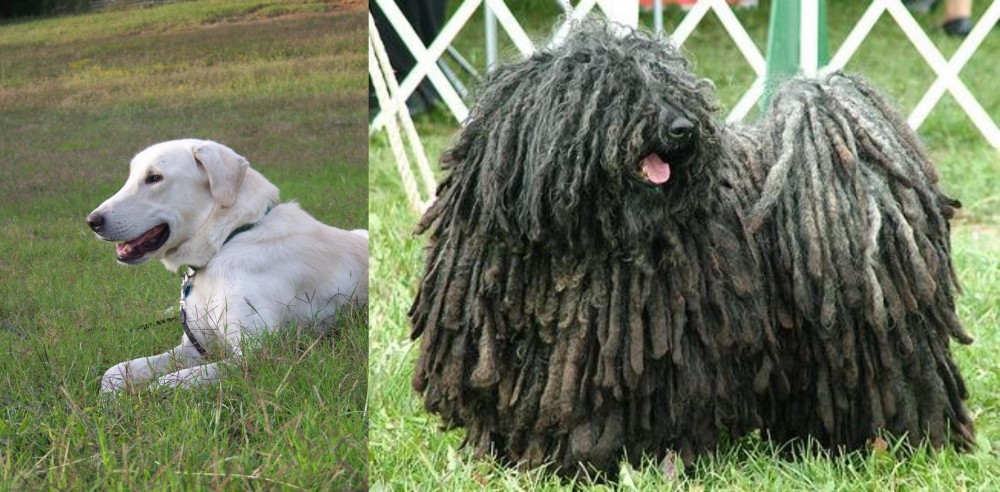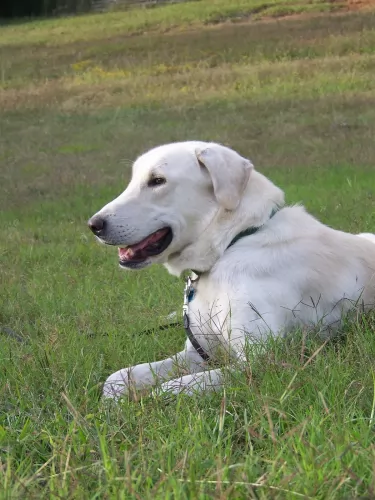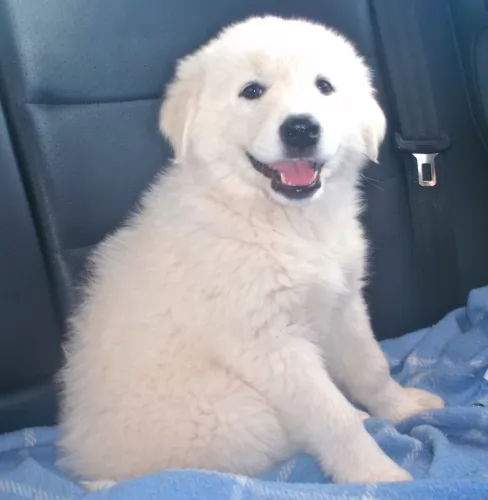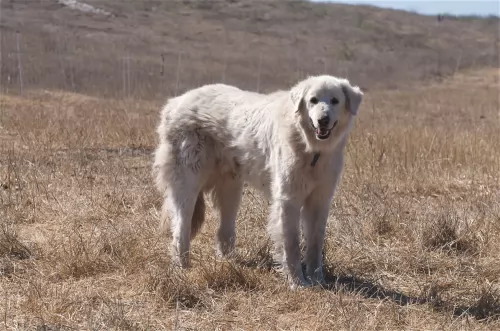 Petzlover
Petzlover Akbash Dog is originated from Turkey but Puli is originated from Hungary. Akbash Dog may grow 39 cm / 16 inches higher than Puli. Akbash Dog may weigh 52 kg / 115 pounds more than Puli. Akbash Dog may live 4 years less than Puli. Akbash Dog may have more litter size than Puli. Akbash Dog requires Moderate Maintenance. But Puli requires High Maintenance
Akbash Dog is originated from Turkey but Puli is originated from Hungary. Akbash Dog may grow 39 cm / 16 inches higher than Puli. Akbash Dog may weigh 52 kg / 115 pounds more than Puli. Akbash Dog may live 4 years less than Puli. Akbash Dog may have more litter size than Puli. Akbash Dog requires Moderate Maintenance. But Puli requires High Maintenance
 Akbash breed became popular in the 1970s. Around that period, Akbash was introduced to North America. There is archeological evidence that this breed was popular even in the 750-300 BC. Of course, it wasn’t the exact dog as we know it today, but there are many similarities between Akbash and dog from the ancient period. This breed was developed in Turkey to be a guardian dog. They were perfect flock guardians.
Akbash breed became popular in the 1970s. Around that period, Akbash was introduced to North America. There is archeological evidence that this breed was popular even in the 750-300 BC. Of course, it wasn’t the exact dog as we know it today, but there are many similarities between Akbash and dog from the ancient period. This breed was developed in Turkey to be a guardian dog. They were perfect flock guardians.
 The Puli’s history is ancient, going back about 2,000 years. It is believed that Sumerians used Puli-type dogs to herd sheep thousands of years ago.
The Puli’s history is ancient, going back about 2,000 years. It is believed that Sumerians used Puli-type dogs to herd sheep thousands of years ago.
Ancient excavations show signs of Puli dogs. It is believed that Magyar tribesmen brought Pulis to Hungary for their herding abilities. The Puli was registered by the American Kennel Club in 1936, and the Puli Club of America was formed in 1951.
 Weight of the Akbash dog variates from 41-64kg, while their height is 71-78cm. Female Akbash is smaller than a male Akbash, but not for much.
A lifespan of an average Akbash dog is 10-11 years, but if they have cared properly, they tend to live longer.
Litter Size of Akbash is 8-9 puppies.
Another Name for Akbash is Akbas Coban Kopegi, Coban Kopegi.
Weight of the Akbash dog variates from 41-64kg, while their height is 71-78cm. Female Akbash is smaller than a male Akbash, but not for much.
A lifespan of an average Akbash dog is 10-11 years, but if they have cared properly, they tend to live longer.
Litter Size of Akbash is 8-9 puppies.
Another Name for Akbash is Akbas Coban Kopegi, Coban Kopegi.
 The Puli is a medium sized dog from Hungary standing at between 36 an 45cm in height and weighing 10 to 13kg. He has always been a herding dog and his long,corded coat has been his trademark.
The Puli is a medium sized dog from Hungary standing at between 36 an 45cm in height and weighing 10 to 13kg. He has always been a herding dog and his long,corded coat has been his trademark.
The color of the coat can be black, white or cream but black is the color most seen with the Puli. The dog may well be a low shedder, but the coat is still going to need a lot of maintenance to keep it looking reasonable. It gets longer and longer and will need to be groomed to keep the cords neat and clean.
The Puli is an intelligent dog and it can be trained to respond to some simple commands. If the dog gets enough exercise, he can adapt to life in the country or in the city. As a herding dog he is used to being busy and will need walks, a run off his leash in the park and ball games.
They get on well with children and with other pets and are loyal to their owners and wary of strangers. They are highly active dogs these, and they just love playing games throughout their adult lives.
Because they are dogs which need a lot of exercise and space, they are more suited to life in the countryside as opposed to life on a small property in the city. They also make good faithful family guardians.
 Have in mind that Akbash is a large and powerful dog. They are bred through generations to be guardians and suspicious. They are very independent because they tend to make their own decisions while guarding flocks. They will require adequate socialization, but overall, they are very intelligent and they tend to learn quickly. It requires time and patience, but are great pets for right owners. Akbash has a white to biscuit color coat. They also have a dark pigment around nose, eyes, and mouth. Akbash is very quick and agile dog, which might be surprised because of its size.
Have in mind that Akbash is a large and powerful dog. They are bred through generations to be guardians and suspicious. They are very independent because they tend to make their own decisions while guarding flocks. They will require adequate socialization, but overall, they are very intelligent and they tend to learn quickly. It requires time and patience, but are great pets for right owners. Akbash has a white to biscuit color coat. They also have a dark pigment around nose, eyes, and mouth. Akbash is very quick and agile dog, which might be surprised because of its size.
It is important to train them since the puppyhood. They are working dogs and they will be happy when they have tasks during training. Due to their independence, consistent and steady training is important. An old-fashioned way of training that includes punishment is not recommendable. Positive training with awards is the best way to train your Akbash dog. They do not require a lot of daily exercises. Daily walks would do more than enough. Younger dogs need more exercise than more mature ones. They can be very good for other animals, but they have to be socialized with them. It is the best way to socialize your dog when it is still a puppy.
 Your Puli is a self-confident, strong willed dog that is intelligent and can learn to be obedient and well mannered. They are also social and playful, and will love to be a family pet, being prepared to provide friendship and loyalty.
Your Puli is a self-confident, strong willed dog that is intelligent and can learn to be obedient and well mannered. They are also social and playful, and will love to be a family pet, being prepared to provide friendship and loyalty.
Because he has always been a herding dog, he takes his role of guardian and protector of his human family seriously. He makes a splendid pet if you’re ready to tackle the long coat which makes sure he doesn’t fit into the low-maintenance category.
 Joints, eyes, and skin problems can cause problems with the Puli dog. Hip dysplasia is a problem with many dogs that can cause pain and also lameness.
Joints, eyes, and skin problems can cause problems with the Puli dog. Hip dysplasia is a problem with many dogs that can cause pain and also lameness.
Check your pet over with grooming sessions and make sure both the ears and eyes are free of discharge and redness.
The coat is thick and the Puli will require you to watch his skin for bacterial infections which can be caused by a lot of itching and scratching. Other common canine health issues to look out for are cancer and bloat.
 Akbash dog is very easy to care. They can stay fit on a minimum amount of food. 2-2.5 cups divided into two meals would be ideal for your dog. They require meat, so giving them dry industrial food can be a solid substitute. Vegetables and oil can also be included in meals. It will keep your dog healthy and happy.
Akbash dog is very easy to care. They can stay fit on a minimum amount of food. 2-2.5 cups divided into two meals would be ideal for your dog. They require meat, so giving them dry industrial food can be a solid substitute. Vegetables and oil can also be included in meals. It will keep your dog healthy and happy.
Puppies have to eat more meals per day. It is the best to give your puppy Akbash 3-5 meals per day. Those meals should be divided into smaller portions. It is recommended to give your puppy all necessary vitamins and minerals that include calcium for stronger bones. It will improve the overall health of your dog, and it will help it develop into a healthy adult dog.
Akbash will request some grooming, but they are not very difficult to groom. They require regular grooming. Every few days will be enough, except when they are shedding. Akbash will need daily grooming when shed. You can bath your pet occasionally, but not very often. Bathing, if necessary, should be done only 5-6 times a year. There is no need for more.
 Training and socialization is important for any dog and not just the Puli. Well trained dogs are a joy to have around – they are obedient and well mannered. The Puli is intelligent enough for you to train him yourself or you can have a professional trainer do it for you.
Training and socialization is important for any dog and not just the Puli. Well trained dogs are a joy to have around – they are obedient and well mannered. The Puli is intelligent enough for you to train him yourself or you can have a professional trainer do it for you.
The Puli is an athletic dog but you don’t want to start with any strenuous exercise with a young dog less than a year of age. Take your young dog for walks and give him some ball games. Only start more strenuous exercise later on to spare unnecessary pressure on the joints which could lead to hip dysplasia later on.
Every dog needs to be brushed and groomed to ensure its health. A dog like the Puli will need additional grooming because of the long dreadlocks for a coat. Many Puli owners prefer to have the hair cut short.
The coat of the Puli luckily doesn’t shed much but the coat, if you keep it long, will require a special wide tooth comb. You’ll need to check inside his ears, check that his eyes are bright without any discharge and also trim his nails.
You will have to check inside his mouth too. He can’t tell you if he has a rotten tooth that is painful and causing him to be sick. You need to regularly check his teeth.
It is important to know how much to feed your Puli. A healthy diet is so important for good health and a long life. All dogs have different appetites depending on their age, their breed, their size, the season of life they’re in and their activity levels.
It is better to feed your dog twice a day as opposed to one meal a day to avoid life threatening illnesses such as bloat. There are excellent commercially manufactured dog foods, but also bad ones, so you want to make sure that the kibble you choose is a high quality one with lots of vitamins and minerals.
You want to give him some home-made food too, keeping it simple and uncomplicated – the way dogs like it. Boiled chicken, brown rice or pasta and spinach, sweet potatoes and carrots are a healthy choice for your pet.
Chop it up and add it into the dry kibble a couple of times a week. Some raw meat added in from time to time will contribute to him being healthy. Never leave him without a constant source of fresh, cool water.